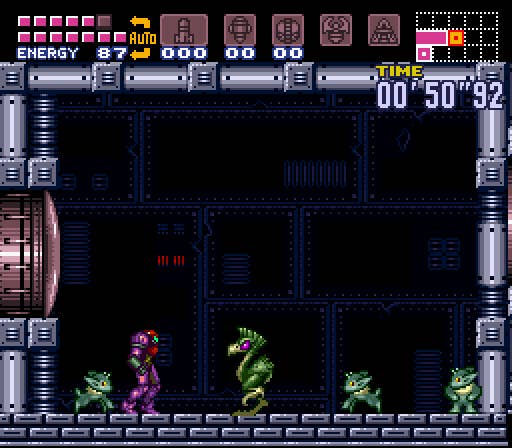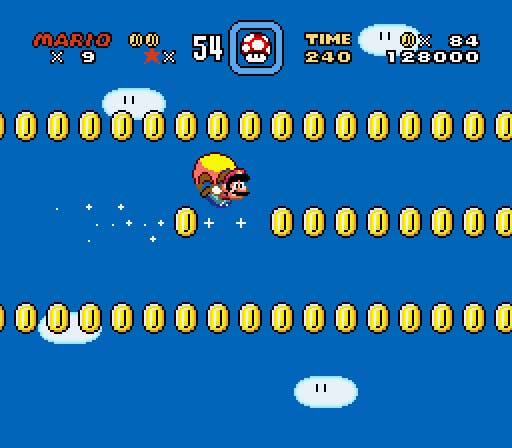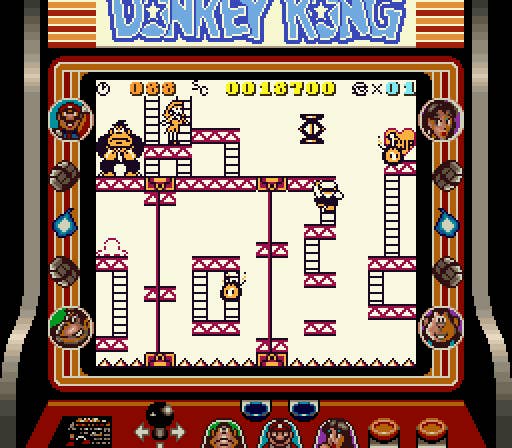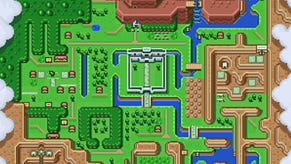Of Metroid and Mastery
How Dark Souls echoes the sophisticated design of classics like Super Metroid.
This article first appeared on USgamer, a partner publication of VG247. Some content, such as this article, has been migrated to VG247 for posterity after USgamer's closure - but it has not been edited or further vetted by the VG247 team.
More than any other games this generation, From Software's Souls series of RPGs stand out for their emphasis on rewarding the player's degree of personal experience. Sure, character experience still matters -- as the fruits of grinding for levels generally do -- but anyone who's taken a second spin through either Demon's or Dark Souls can tell you how much smoother these games go down with the combined forces of knowledge and confidence on your side.
Not to mention that traversing through these exceptionally difficult games once again can really throw the old you into a miserable light, especially when you reach in minutes what originally took hours (or days, or weeks). Make no mistake, that's exactly what From wants: Once you learn the many rules of their numerous systems, you're better equipped at level 1 than you were at level 30 or 40 of your first playthrough -- mentally, at least.
So it shouldn't come as much of a surprise that the fan bases of the Souls series and classic gaming seem to overlap significantly; we oldsters remember when games wouldn't let us budge until our pattern-memorization and reflexes could meet the challenges presented. Of course, some games took this idea a little too far, and have aged poorly as a result: Zelda II: The Adventure of Link placed an emphasis on its protagonist's increasingly complicated move set by forcing the player to cope with some incredibly tough enemies from the very first dungeon -- with failure sending our hero aaalll the way back to the starting point of his journey. While I can respect what it sets out to do, Zelda II feels way too much like a test of endurance, and one I could never meet -- and really, does anyone like fighting all of those damned Ironknuckles? (I'm expecting to hear "yes" from a very loud minority in the comments.)

With classic games that don't offer much in the way of difficulty, the sense of personal mastery comes in much smaller -- though still very significant -- forms. Take Super Metroid, for instance (and you really should, if you have a Wii U): I've been playing through it for the first time since its original Virtual Console release. This time, I'm taking advantage of Samus' most useful innate ability, the wall jump. While she can do some amazing things thanks to the many power-ups littered throughout Zebes, Samus comes equipped with a wall jump ability -- though this fact won't sink into most players' skulls until they're stuck in a point where using this skill becomes necessary to progress. And while I'm sure the instructions describe this move in detail, the game itself shows you through the actions of some furry alien dudes who've taken it upon themselves to teach Samus.
Even then, wall jumping can still be difficult: In my earliest playthroughs of Super Metroid, getting out of this pit stood as a "never again" type of moment -- there would be no more talk of these so-called "wall jumps" and the amount of swears they made spill from my still-innocent month.

When running through Super Metroid became a thing I did every few years, eventually, the precise timing of wall jumps just clicked in my brain; unlike similar moves in Mario, Mega Man, and the like, getting Samus to kick herself off of a wall and higher into the air requires precise timing, and paying careful attention to her sprite. But once you can pull it off effectively -- and realize wall jumping is something you could have been doing for the entire game -- the envrionments of Super Metroid become a sort of playground for the player's skilled acrobatics. This time around, I kept wall-jumping in mind from minute one, and found myself reaching points the game didn't intend for me to see until certain power-ups paved a path. And this shouldn't come as a surprise to anyone who's been following the many, many Super Metroid speedruns out there that this seemingly straightforward game can be turned inside-out by players adept at using Samus' skills wisely.
Mario games tend to be much more accessible than Metroid, but one installment offered a power-up that demanded the same amount of player skill as Samus' wall jump: Super Mario World and its incredible cape. Simply put, there's a reason why the developers make you play through an entire set of levels before you can get your hands on it -- you're just not ready yet. I've often referred to Super Mario World's cape as the European sports car of power-ups, as it offers a significant amount of power and speed, but only to those who can master its touchy nature. Even though the game does its best to explain the cape's unorthodox controls, it takes quite a bit of experimentation to learn just how versatile this tool can be. In fact, it seems that Miyamoto and his crew understood that a lot of people just wouldn't know how to handle the cape, so no levels force you to use it for this purpose -- and Mario World offers other flight options (like blue Yoshis) for players who want to take to the skies via much friendlier means.

1994's Donkey Kong for Game Boy adds even more moves to Mario's repertoire, though the misleading intro stages -- which replicate the original arcade experience before increasing the scope by magnitudes -- may have players initially thinking Nintendo dialed back their design to 1981. Beginners will take on the girders one level at a time, jumping barrels along the way, but those who've come to terms with Mario's versatility can simply handstand jump their way up to Donkey Kong within seconds. DK '94 doesn't introduce one of Mario's new moves at a time; instead, it drops them all in your lap from the beginning, and rewards players willing to learn more than just the basics.
While this concept of rewarding the player for mastering complex and often optional skills has gone out the window in favor of accessibility, some developers still regard their games in a very old-fashioned way. Platinum Games offers easier paths for players who don't want to devote the time necessary to master their games' complex mechanics, but players with an old-school mindset have found this developer's output incredibly satisfying to conquer. Even Metal Gear Rising Revengeance, one of their most mainstream titles, features a parrying system a whole lot of players just aren't going to understand -- I know I didn't until a certain boss forced me to learn it or face the shame of lowered difficulty. And I appreciated that the game actually demanded something of me, and opened up significantly once I met it halfway -- a far cry from the constant, patronizing encouragement of most AAA games that fear you'll put them down for any other entertainment choice that doesn't challenge you in the slightest.
As development grows even more expensive, this sense of insecurity can only grow larger; though I hope some developers will still hold fast to the idea of games as something to master, rather than an experience of gentle nudging from start to finish.




